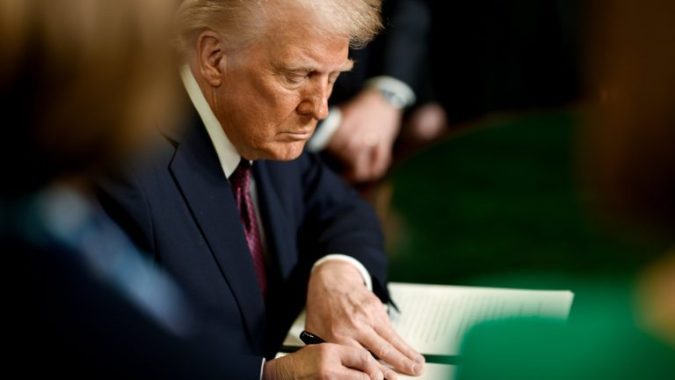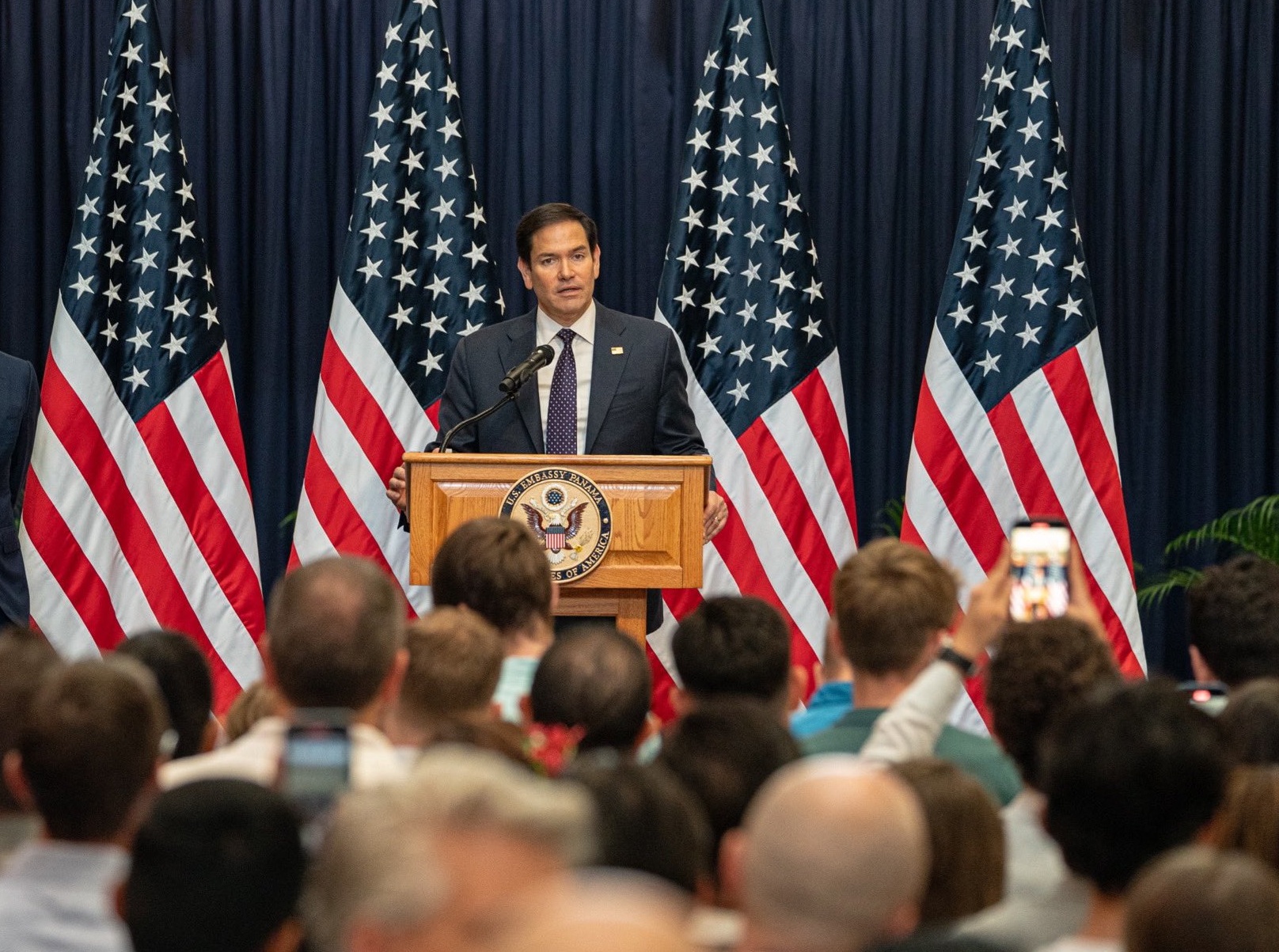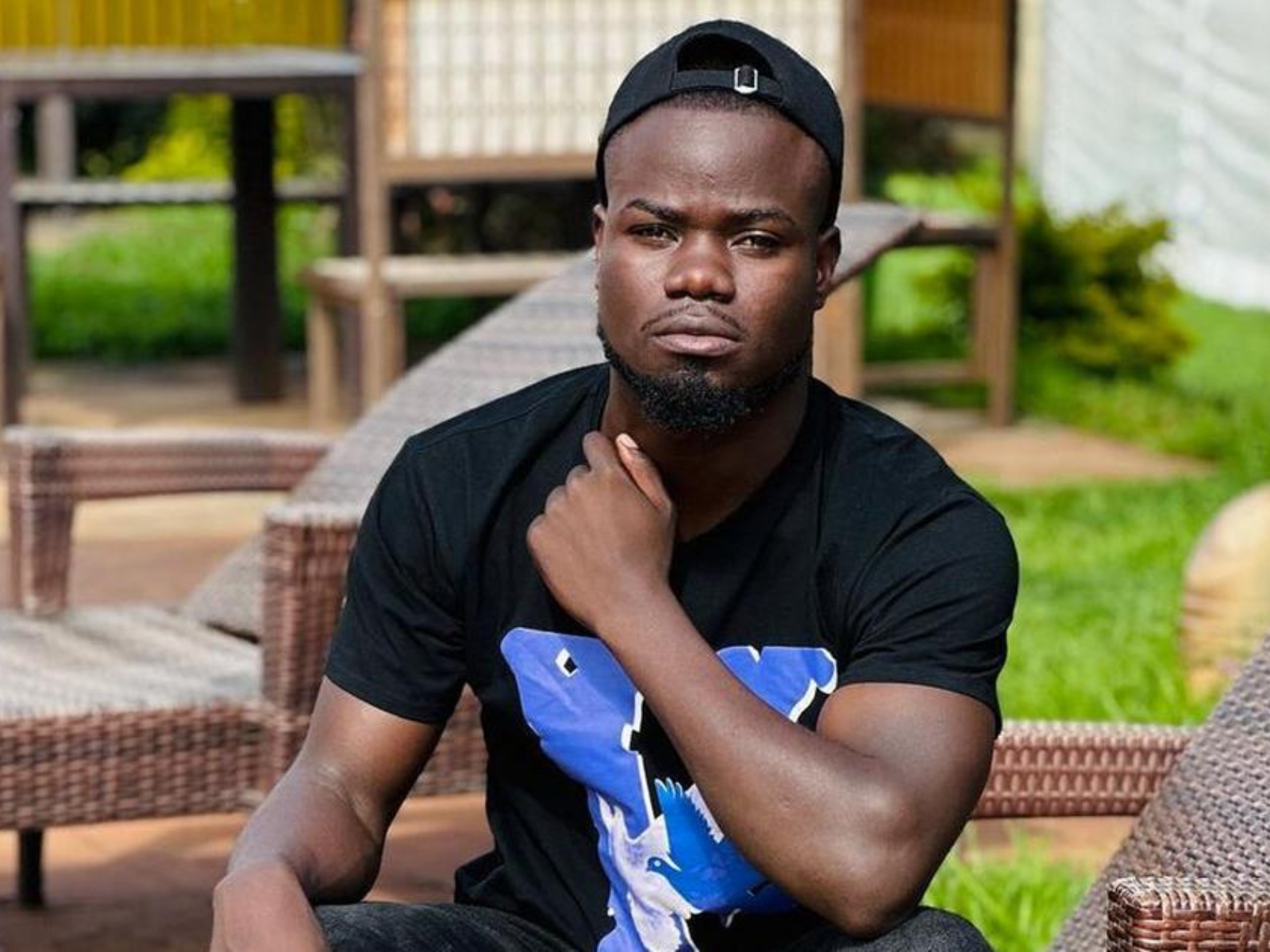No reprieve for Kenya even as Trump orders 90-day pause on new tariffs

Kenya will not receive any immediate trade relief from a temporary freeze on new tariffs ordered by United States President Donald Trump, even as the move has calmed international markets rattled by his recent trade policies.
On Wednesday, April 9, 2025, President Trump announced a 90-day pause on his sweeping tariffs, establishing a 10 percent baseline tariff for most countries while maintaining significantly higher levies on imports from China.
“Based on the lack of respect that China has shown to the World’s Markets, I am hereby raising the Tariff charged to China by the United States of America to 125%, effective immediately,” Trump wrote on his social media platform, Truth Social.
“At some point, hopefully in the near future, China will realize that the days of ripping off the U.S.A., and other Countries, is no longer sustainable or acceptable,” he added.
In a dramatic turn of events, Trump cited a long-running strategy designed to push countries into negotiating favourable trade terms with the US.
While noting that over 75 countries had requested negotiations regarding the tariffs, President Trump stated he had authorized a 90-day pause and a substantially lowered Reciprocal Tariff of 10 percent for these nations during this period, also effective immediately.
“Conversely, and based on the fact that more than 75 Countries have called Representatives of the United States, including the Departments of Commerce, Treasury, and the USTR, to negotiate a solution to the subjects being discussed relative to Trade, Trade Barriers, Tariffs, Currency Manipulation, and Non Monetary Tariffs, and that these Countries have not, at my strong suggestion, retaliated in any way, shape, or form against the United States, I have authorized a 90 day PAUSE, and a substantially lowered Reciprocal Tariff during this period, of 10%, also effective immediately. Thank you for your attention to this matter!” Trump wrote.
US Treasury Secretary Scott Bessent described President Trump’s decision as a strategic maneuver to encourage trade negotiations rather than a haphazard application of tariffs that had unsettled the global economy.
“This was driven by the president’s strategy. He and I had a long talk on Sunday, and this was his strategy all along. You might even say he goaded China into a bad position. They responded. They have shown themselves to the world to be bad actors,” Bessent said.
Kenya left in the cold
However, the 90-day pause provides relief only to countries that were initially facing tariffs exceeding the 10 percent baseline.
As the United States has imposed a 10 percent tariff on all imports from Kenya, this levy will remain in effect despite the temporary freeze.
President Trump’s tariff policy, signed on Wednesday, April 2, 2025, set the 10 percent baseline tariff on all imports, with considerably higher rates applied to major trading partners such as China (34%), the European Union (20%), Vietnam (46%), Taiwan (64%), Japan (24%), India (26%), and South Korea (25%).
The measures, framed by the Trump administration as efforts to reduce wasteful spending and promote fair trade, generated concern in Kenya and other countries.
The White House stated that Kenya imposes a 10 percent tariff on goods from the United States, citing issues such as currency manipulation and trade barriers.
These reciprocal impositions are expected to affect the $1.5 billion total goods trade between Kenya and the United States in 2024.
Data from the United States Trade Representative’s office indicates that Kenya’s exports to the US in 2024 were valued at $737.3 million, a 17.5 percent decrease from the previous year.
Key exports included apparel, coffee, and tea.
Simultaneously, Kenya’s imports from the US rose by 61.4 percent to $782.5 million.
Kenya had previously benefited from tariff-free access to the US market under the African Growth and Opportunity Act (AGOA) since May 2000, but this preferential treatment is set to expire in September.
Several other African nations trading with the US also face the 10 percent base tariff, including Rwanda, Burundi, Eritrea, South Sudan, Sudan, Ethiopia, and Uganda.
Higher tariffs were imposed on countries like Nigeria (14%), Malawi (17%), Zimbabwe (18%), DRC (11%), Zambia (17%), and Mozambique (16%).
The Trump administration announced that the new tariffs took effect on April 9, leaving Kenya without the temporary relief afforded to nations facing higher initial levies.
Author
Martin Oduor
The alchemist of literary works - a master wordsmith with a proven record of transforming the raw materials of language into a rich tapestry of emotion, thought, and imagination.
View all posts by Martin Oduor











